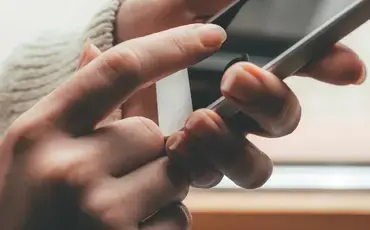
What is Third Party Debt Order?
There is a whole host of reasons and circumstances that can leave people’s finances in disarray. Even with the best of intentions, there are times when situations occur and keeping up with repayments is not possible.
If you find yourself facing such a situation, it can be easy to want to hide and ignore demands for payment. However, hiding from your creditors will not make the situation go away and could even mean you incur extra charges and cause damage to your credit score; affecting future financing options.
When facing tough financial circumstances, be upfront with your creditors. Explain your circumstances; both you and your creditor are likely to want to avoid the hassle, costs and the time it takes to pursue repayment via the courts, so it may be possible to work out a new repayment arrangement that works for both parties.
While coming to an arrangement outside of court is preferred, it is not always an option and if your debt has been escalated and a court has made a judgement that you owe money, known as a County Court Judgement (CCJ), it means that the court has decided how much you owe, how you must repay the money and by when.
With the potential to affect future credit, CCJs should not be ignored, however, if, for whatever reason, you do not repay the debt as per their court’s instructions, your creditor can pursue an alternative way to recoup monies owed to them.
This includes a third-party debt order.
What is third-party debt order?
Previously known as a garnishee order, third-party debt orders apply in England and Wales and can be obtained against those who do not comply with a CCJ. The order works by allowing the creditor to take money directly from money owed to the debtor, bypassing the debtor.
For example, in cases where a redundancy settlement, insurance payout or inheritance is due, the creditor could get their money paid directly to them from this payment, with whatever remains paid to the debtor. An order such as this is often used to make a debtor’s bank or building society pay the creditor from the debtor’s account.
What kind of debt do third-party debt orders apply to?
Whatever the debt, whether an overdraft, credit card or a personal loan, third-party debt orders can be applied, providing a CCJ is in place and has been ignored.
I am behind with my CCJ repayments? Should I now expect a third-party debt order?
While it is certainly an option for creditors, if you have a CCJ against you, you may find that those you owe money to pursue other options before evoking a third-party debt order.
Other options creditors could explore include using bailiffs, who have the power to remove goods belonging to you and sell them in order to raise funds to pay off your debt. Further fees will be incurred and added to the debt.
Depending on circumstances, an attachment of earnings could be obtained, this sees money taken directly from the debtor’s wages and paid to the creditor. Another alternative is a charging order which secures debt against the debtor’s property.
When can creditors apply for third-party debt orders?
To be successful in obtaining a third-party debt order a CCJ must be in place. The judge, when deciding on whether to award an order, will look at a whether the debtor is sticking to the terms of the CCJ, including whether they have paid the due amount or whether they have missed any instalments.
How to apply for an order
To apply for an order, creditors need to complete an application for a third-party debt order (form N349) and submit it to the court.
A court fee will apply.
What is the process once the court has my application?
The application will be referred to a judge who, if satisfied by the information within the application, will make an interim order. This will see the third-party’s money frozen. From this point a hearing will be set at which time the judge will decide whether to pay the frozen money to the creditor. It is important that creditors attend this hearing.
The debtor and the third-party have the option to object to the application for a third-party order and this must be done at least three days before the hearing.
If you’d like to find out more about the legal services offered by Smith Partnership, don’t hesitate to contact us via info@smithpartnership.co.uk. Alternatively, speak to a member of our team directly on 0330 123 1229.

Share this article






















